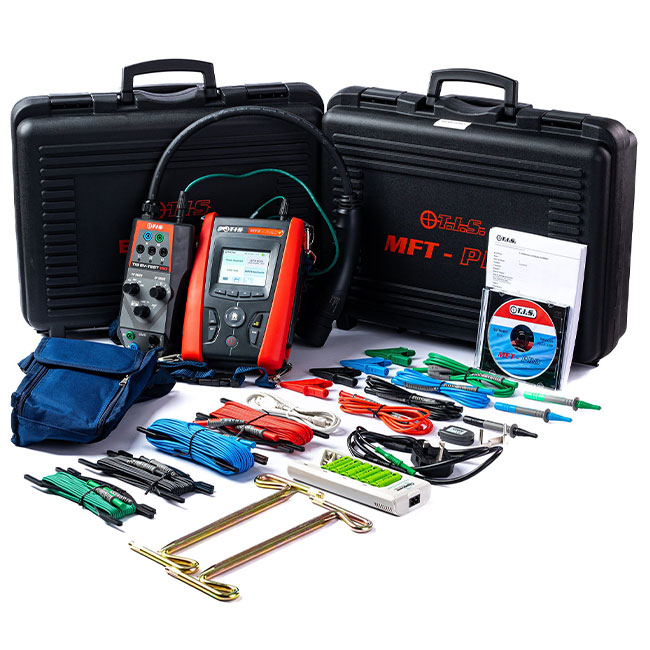
The main role of an EVSE tester is to mimic the presence and performance of an electric vehicle (EV), which therefore allows the EVSE tester to verify the safety, reliability and performance of a charging station under various different conditions. During its operation, a charging station is subjected to general wear and tear, due to being stored outside and also through everyday use, and can also be damaged and experience errors and faults. All this needs to be checked to ensure the EVSE is safe to use and performs its function effectively and reliably.
The different performance checks carried out by an EVSE tester
- Connection – The EVSE tester is connected to the charging station via the charging port, which therefore mimics the presence of an EV. It means the charging station can be tested without an EV having to be present.
- Different charging states – An EVSE tester is able to simulate the different charging states that the charger should encounter. These include a vehicle being connected but not ready to charge, and a vehicle being connected and being ready to charge.
- Confirming the output of the charging unit – An EVSE tester should have capability to measure the output voltage and frequency of the charging unit in each of its charging states, and these can be compared to the expected values.
- Testing fault conditions and safety features – Earth Fault and CP error (Control pilot error) are two common fault conditions found with charging stations. An EVSE tester can simulate these fault conditions to confirm that the EVSE shuts down correctly and stops sending charge when these faults occur.
- Earth checks – Proper earthing is an essential safety feature for EVSE, and a tester should perform an earth loop impedance test to confirm this is in place and operating effectively.
- Testing for RCDs – A charging station needs to be able to identify charging errors and prevent electric shocks, so testing should include conducting RCD (residual current device) tests to confirm that RCDs are operating effectively.
- Records – It is important that all test results are documented and saved in order that they can act as formal verification of the tests being carried out and specific standards being met. Test results should include voltages, frequencies and error conditions found. These results can also be referred back to during future maintenance checks and when troubleshooting problems encountered during operation.
Professional EVSE testing equipment from Test Instrument Solutions
The increasing number of EV charging stations in the UK means that EVSE testing is under more scrutiny and test equipment is quickly being developed to meet these increasing demands. The range of EVSE testing equipment and accessories supplied by Test Instrument Solutions includes multi-function testers with EVSE capability, such as the TIS-MFTPRO, while there are also specialist EVSE testing units such as the MFTECO-EV. While we can also supply kits made up of test equipment and all the associated accessories such as test probes, along with a handy carry kit, for example the TIS MFTPRO + EV.
So check out our full range of EVSE test equipment and make sure your charging stations are fully tested and their safe operation verified.
Please note that this section is for information purposes only. Anyone using equipment referred to in this section must be suitably qualified and/or experienced within the respective field. If in doubt before use, please consult a qualified electrician or engineer & thoroughly read all instruction booklets.